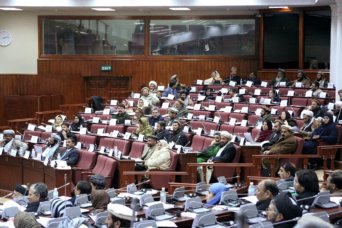- About
- Topics
- Story
- In-Depth
- Picks
- Opinion
- News
- Donate
- Signup for our newsletterOur Editors' Best Picks.Send
Read, Debate: Engage.
As the political situation in the region around war-ravaged Afghanistan intensifies further, the seemingly worsening ragging violence demands a much more mature and coercive response from political leadership on both sides of the aisle.
More often than not, direct foreign meddling with the help of local parties has led to destabilisation in Afghanistan throughout its history. With the relative peace during the past 17 years, Afghans have had a chance to bank on the gains in the sociopolitical and economic fronts. Since the end of NATO’s combat mission in 2014, the country’s nascent security forces are shouldering the heavy responsibility of national security with a heavy toll on lives and infrastructure. Undermining the credibility of these brave patriotic forces for political gains is a formula for compromising the very state that was built with the sacrifices of so many lives and plenty of fortune.
Following the landmark parliamentary elections in Afghanistan, the stage is set for an important presidential race that will test the maturity of the country’s leadership and institutions. However, it is worrying to see the beginning of several aggressive political campaigns for the top position, with propaganda tactics undermining the state in the wake of mounting pressure by the armed rebels to make inroads.
The rebels – allegedly backed by regional spy agencies – managed to stage a deadly encounter in Kandahar last week, killing and wounding scores of Afghan and U.S. security officials. The militants then went on to claim the hitting down of a military chopper with more than 20 officers and officials onboard in Farah province which borders Iran, while also storming villages and killing scores of young policemen and soldiers.
Instead of denouncing these atrocities and raising collective calls for peaceful settlement of the war, many politicians, in opposition as well as in the government, are playing with fire by indulging in ethnic politics in order to hold on to the power and perks.
As Moscow and Washington seem to be pushing (in their own ways) for the peace process to resume, it is the Afghans that need to unite first in their demand for an end to the war that has left deep scars on three generations to date.
